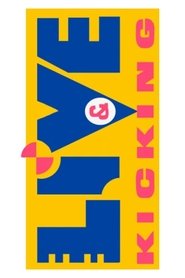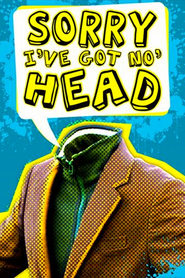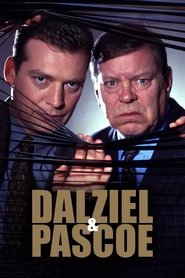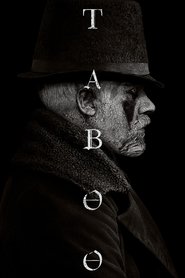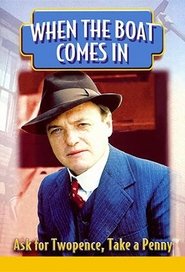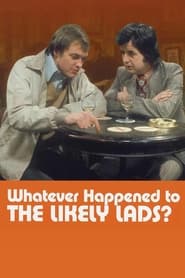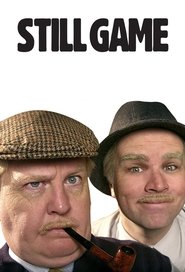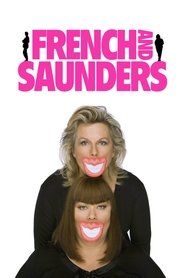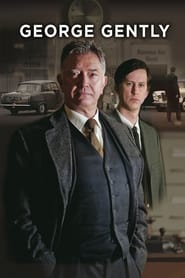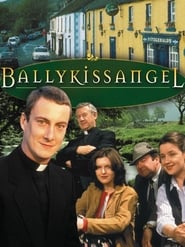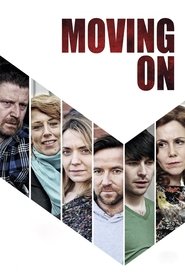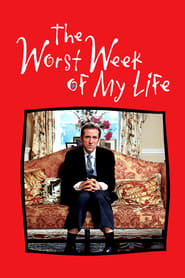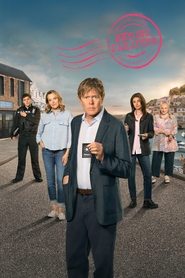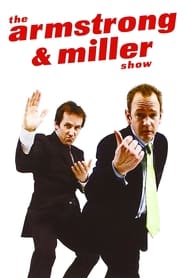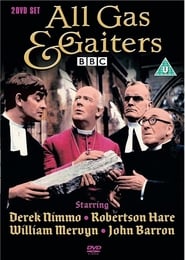Bbc One TV Series - Page 13
-
Live & Kicking
1993
star 5.3Live & Kicking was a BBC Saturday morning children's magazine programme, running from 1993 to 2001. The fourth in a succession of Saturday morning shows, it was the replacement for Going Live!, and took many of its features from it, such as phone-ins, games, comedy, competitions and the showing of cartoons. Once Live & Kicking had become established in series two, it reached its height in popularity during series four, when it was presented by Zoë Ball and Jamie Theakston; their final episode won a BAFTA award. After this the series ratings dropped with the launch of SMTV Live on ITV and was eventually cancelled in 2001. -
Sorry, I've Got No Head
2008
star 6.5A sketch show jam packed with big, silly characters and fun repeatable catchphrases to make you laugh. From vikings who scream when scared to a chef who farts too much, this is must watch comedy for all the family. The programme's cast originally consisted of William Andrews, David Armand, James Bachman, Marcus Brigstocke, Anna Crilly, Justin Edwards, Mark Evans, Mel Giedroyc, Marek Larwood and Nick Mohammed, most of whom have also written parts of the show. -
Dalziel & Pascoe
1996
star 6.4British crime drama based on the "Dalziel and Pascoe" series of books by Reginald Hill, set in the fictional Yorkshire town of Wetherton. The unlikely duo of politically incorrect elephant-in-a-china-shop-copper Detective Superintendent Andrew Dalziel (pronounced Dee-ell) and his more sensitive and university educated sidekick Detective Sargent, later Detective Inspector, Peter Pascoe is always on hand to solve the classic murder mystery, while maintaining a down to earth wit and humour. -
The Paradise Club
1989
star 5.8The Paradise Club is a BBC television drama starring Don Henderson and Leslie Grantham as Frank & Danny Kane. Two series were produced and were broadcast between 1989 and 1990. The show focuses upon two brothers, Frank & Danny Kane. Their mother, Ma Kane, is the matriarch of a criminal gang in South London, helped by her son Danny. Frank has become a priest but leaves the church; he inherits The Paradise Club on the death of their mother and returns to London to try and steer Danny away from crime. -
The Good Life
1975
star 7.6Tom and Barbara Good escape the rat race and pursue a self-sufficient lifestyle in Surbiton, much to the concern, frustration and sometimes envy of their neighbours Margo and Jerry Leadbetter. Entitled ‘Good Neighbors’ when shown in the USA. -
Taboo
2017
star 7.9Adventurer James Keziah Delaney returns to London from Africa in 1814 along with fourteen stolen diamonds to seek vengeance after the death of his father. -
When the Boat Comes In
1976
star 6.5A former Army sergeant returns home to an economically depressed Gallowshields in Tyneside at the end of World War One. But this sergeant always lands on his feet... -
Whatever Happened to the Likely Lads?
1973
star 7.7Whatever Happened to the Likely Lads? is a British sitcom which was broadcast between 9 January 1973 and 9 April 1974 on BBC1. It was the colour sequel to the mid-1960s hit The Likely Lads. It was created and written, as was its predecessor, by Dick Clement and Ian La Frenais. There were 26 television episodes over two series; and a subsequent 45-minute Christmas special was aired on 24 December 1974. The cast were reunited in 1975 for a BBC radio adaptation of series 1, transmitted on Radio 4 from July to October that year. In 1976, a feature film spin-off was made. Around the time of its release, however, Rodney Bewes and James Bolam fell out over a misunderstanding involving the press and have not spoken since. This long-suspected situation was finally confirmed by Bewes while promoting his autobiography in 2005. Unlike Bewes, Bolam is consistently reluctant to talk about the show, and has vetoed any attempt to revive his character. -
Still Game
2002
star 8.3Cult Scottish comedy about the lives of two OAP's (Old Age Pensioners) Jack and Victor and their views on how it used to be in the old days and how bad it is now in the fictional town of Craiglang. -
French & Saunders
1987
star 7.5French and Saunders is a British sketch comedy television series written by and starring comic duo Dawn French and Jennifer Saunders. It is also the name by which the performers are known on the occasions when they appear elsewhere as a double act. -
Inspector George Gently
2008
star 7.9Crime drama set in the 1960s about an old-school detective trying to come to terms with a time when the lines between the police and criminals have become blurred. -
Ballykissangel
1996
star 6.9A young British priest adjusts to life in a rural Irish community where life revolves around the church and the local pub. Everyone knows everyone else's business, and everyone usually has an opinion on it. While characters come and go, the small-town qualities remain. -
Moving On
2009
star 7.1Moving On is a British television series set in contemporary Britain consisting of standalone dramas all sharing the theme of someone going through some kind of change in their life and moving on. -
Belonging
2000
Belonging
2000
Belonging is an English-language Welsh television drama series, produced by BBC Wales and broadcast on BBC One Wales. The programme revolved around the lives of the Lewis family, and their various trials and tribulations in the changing environment of their South Wales town Bryncoed and modern Wales. The programme began in 1999, and its ninth and final series started in April 2008 and ended in June. A one-off ten-year anniversary special was broadcast on 16 April 2009, centring around a reunion of the Lewis family. -
The Worst Week of My Life
2004
star 8.1The Worst Week of My Life is a British comedy television series, first broadcast on BBC One between March and April 2004. A second series was aired between November and December 2005 and a three-part Christmas special, The Worst Christmas of My Life was shown during December 2006. It was written by Mark Bussell and Justin Sbresni. -
Beyond Paradise
2023
star 6.6After leaving paradise and seeking a quieter life, Humphrey has taken a job as Detective Inspector in his fiancée Martha's hometown. But with the high crime rate, maybe things will be louder than expected. -
Murphy's Law
2001
star 7.7Detective Sergeant Tommy Murphy is a maverick cop with a dark past. After failing a psychiatric assessment, he is given one last chance by his boss and given a dangerous undercover assignment. Murphy is a loner with little to lose and deals with everything on his own terms. This time around, however, Murphy has an ally in Detective Inspector Annie Guthrie. -
The Armstrong and Miller Show
2007
star 6.6Original and eccentric comedy sketches from Alexander Armstrong and Ben Miller. -
All Gas and Gaiters
1966
star 5.5All Gas and Gaiters is a British television ecclesiastical sitcom which aired on BBC1 from 1966 to 1971. It was written by Pauline Devaney and Edwin Apps, a husband-and-wife team who used the pseudonym of "John Wraith" when writing the pilot. All Gas and Gaiters was also broadcast on BBC Radio from 1971 to 1972. -
A Ghost Story for Christmas
1971
star 7.5A strand of annual British short television adaptations of classic ghost stories, referencing the oral tradition of telling supernatural tales at Christmas. First broadcast on BBC One from 1971 to 1978, and revived in 2005 on BBC Four.
